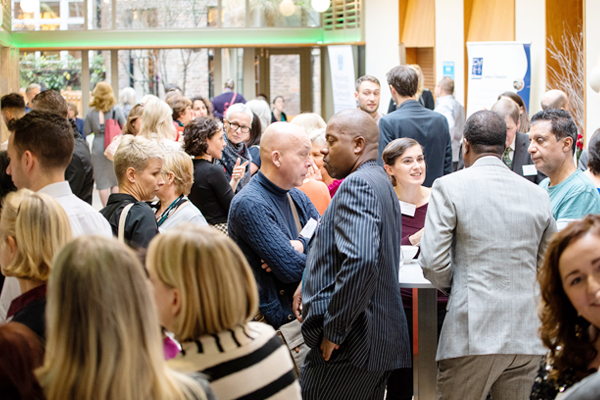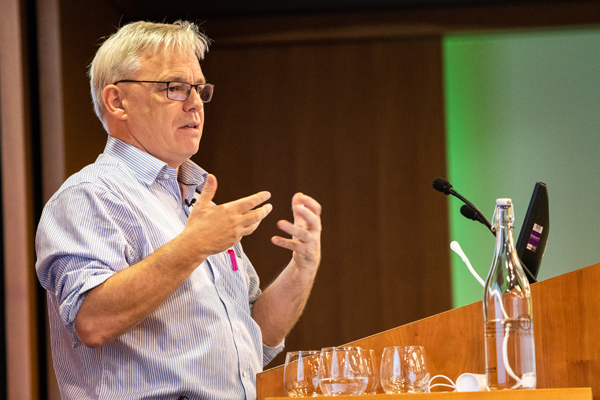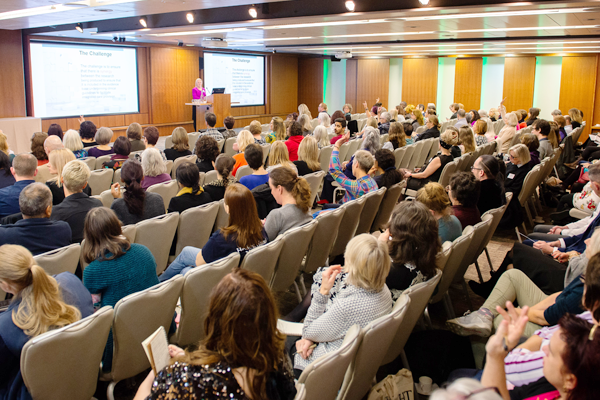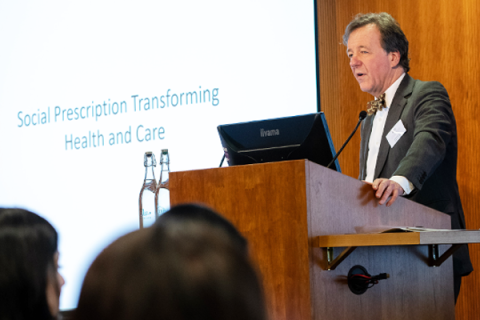The 2018 FHT Conference brought together leading experts in research, education and health and social care, to explore some of the challenges and opportunities for the successful integration of complementary therapies into mainstream care.
Held at The King’s Fund, London, on 29 November, the conference got under way with two presentations that focused on research. Professor Nicola Robinson discussed some key issues surrounding the collection and use of evidence base for therapies such as acupuncture, while Dr Julie McCullough highlighted the positive findings of a trial that looked at the impact of antenatal reflexology on women with pregnancy-related low back and/or pelvic girdle pain.
The talks encouraged interesting discussions on the merits of qualitative and quantitative research and what therapists new to research could do to prove the efficacy of their therapies. We’re pleased to advise members that an article by Nicola Brough and Professor Sarah Stewart-Brown that looks at two different patient-reported outcome measures suitable for complementary therapies and integrated health care will be published in the Winter issue of International Therapist.



Delegates also enjoyed listening to presentations from two of the most influential GPs in health care and trailblazers in social prescription—Sir Sam Everington and Dr Michael Dixon. Sir Everington left delegates captivated with an insight into Bromley By Bow Centre, a practice that has transformed health care in one of the most diverse and economically deprived areas in London, through community-based integrated services and referrals. Sir Everington told us that the philosophy at Bromley By Bow is ‘it’s not what’s the matter with the patient, it’s what matters to the patient’.
Dr Michael Dixon looked at the potential of social prescribing and personal health budgets, giving us an overview of the Culm Valley Integrated Centre For Health in Devon. Like Bromley By Bow, Dr Dixon’s practice champions social prescribing and community health, through integrated care but serves a very different local community. Dr Dixon told us that if patient-centred community care can work in both Bromley and the Culm Valley, it can be implemented anywhere in the UK. Discussions afterwards centred on how therapists could convince the NHS to work with them in their local communities. Both GPs said it is important to ‘win over the hearts’ of medical professionals and although this can take time, it is important to persist.
Talks by Anita Mehrez, MFHT, a member of the complementary health and wellbeing team at The Christie NHS Foundation Trust, and Jennifer Young, MFHT, founder of Beauty Despite Cancer, offered delegates an insight into how therapies have been successfully integrated into the NHS, working alongside conventional medical care to support those impacted by cancer. Jennifer found the NHS in her area very open to working with her and was even approached by her local hospital to set up an appearance and wellbeing clinic within a specialist cancer centre.

The day’s programme was then rounded off by conference host, Janey Lee Grace—a regular presenter on Radio 2 and UK Health Radio—announcing the winners of the 2018 FHT Excellence Awards, which serve to recognise those raising the bar in therapy training and practice. See our talented award winners here.
President of the FHT, Chris Byrne, says: ‘Everyone at the FHT is extremely proud of this event, not least because of the incredible speakers who took time out of their very busy schedules to share with us their vision of what truly integrated healthcare looks like. I personally came away inspired to think of new ways we can all work together to ensure even more people get access to the best of both conventional and complementary care, which in turn will help to relieve some of the burden currently being placed on our healthcare system.
‘It was also a real pleasure to see our 2018 FHT Excellence Award winners receive some much-deserved recognition as part of the event programme, particularly as they too are doing work that is helping to support the integrated health agenda. Congratulations, and keep up the excellent work. What you do really makes a difference.’
FHT member, Jacky Huson called the Conference ‘A fantastic and inspiring day’ and says ‘it was very affirming to hear speakers in the biomedical field being so supportive and proactive in integrating complementary therapies into their practice and promoting social prescription. At last a sensible way forward giving choice and responsibility to patients, with a real role for therapists.’
Helen Robinson, MFHT, says ‘Thank you for an absolutely excellent day, all the speakers were absolutely superb. I've come away buzzing with all the potential. Thank you so much....I'm very proud to be an FHT member.’